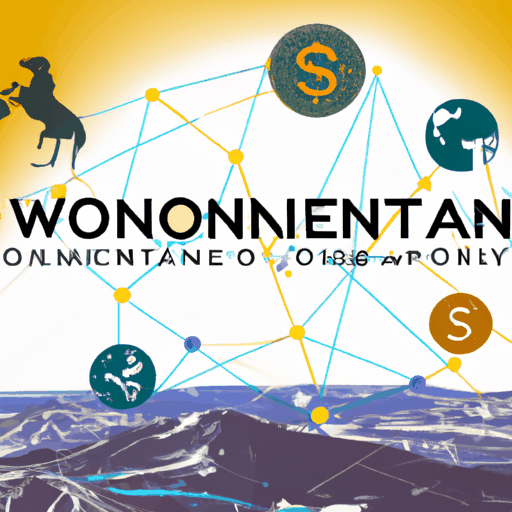
Wyoming's Frontier Stablecoin Launches on Multiple Blockchains
By: Isha Das
Wyoming has formally introduced the Frontier Stable Token (FRNT), marking it as the first-ever state-issued stablecoin in the United States. The launch signals Wyoming's significant step into the competitive stablecoin market, estimated to be worth around $285 billion. The FRNT token is facilitated by LayerZero technology, allowing it to function across a network of seven major blockchains including Ethereum, Solana, Arbitrum, Avalanche, Polygon, Optimism, and Base, enhancing its accessibility and integration into the digital economy.
FRNT is a fully-backed digital token, supported by US dollars and short-term US Treasury securities, ensuring safety and transparency for its users. The token's mechanism promises to deliver fast and secure digital transactions worldwide, targeting not just individuals but also global businesses and institutions. Significant backing from Wyoming Governor Mark Gordon emphasizes the state's long-term commitment to innovation in financial technologies while maintaining consumer protection. Governor Gordon remarked that the launch of the FRNT token aims to modernize transaction methods in the state, offering its citizens and businesses an efficient and innovative financial tool.
Kraken, a Wyoming-based digital asset exchange, is poised to list the FRNT token on the Solana blockchain, with additional utilities in place through Raincards' Visa-integrated platform, promoting transactions on Avalanche. These advance integrations reflect the strategic positioning of the FRNT token to compete with existing stalwarts in the stablecoin market such as Tether’s USDT, Circle’s USDC, and Ripple’s RLUSD. As crypto markets continue to intersect with traditional financial institutions, the introduction of state-level stablecoins like FRNT marks a substantial development in the evolution of digital currencies.
The entrance of FRNT into the market is anticipated to attract a share of a growing sector, which is drawing interest from major financial bodies, including Bank of America. This influx of stablecoins is expected to enhance global access to the US dollar and potentially increase demand for US Treasuries - the financial backbone upon which many stablecoins rely. Financial experts, including the likes of US Treasury Secretary Scott Bessent, have noted the potential of stablecoins in revolutionizing dollar access on a worldwide scale. As regulatory frameworks tighten across different regions, including the US, South Korea, Hong Kong, and Europe, the role of state-backed stablecoins will be critical in shaping the next chapter of digital financial ecosystems.



